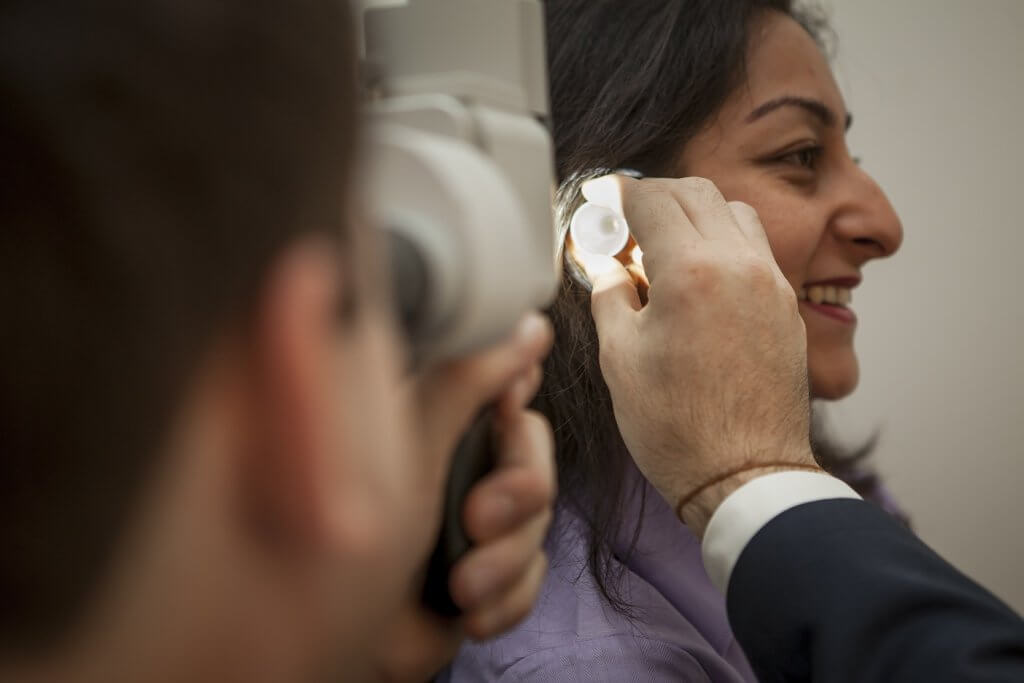Around 11 million people in the UK live with hearing loss, yet it can take up to seven years for sufferers to identify the problem and take action.
One reason for this is the nature of the condition — it appears gradually over time, making it difficult to identify. But the sooner it is addressed, the better your chances of preserving your hearing. So what causes our hearing to fade as we get older?
Why does hearing loss occur?
Deep within your inner ear are thousands of tiny hair cells. Each of these hair cells transforms sound waves into signals your brain can understand, letting us hear music, conversation, laughter and all the other sounds the world has to offer.
There are a broad range of factors that can lead to hearing loss:
-
Loud noises – the hair cells inside your ears are delicate, and long-term exposure to loud noises can damage them irreparably.
-
Presbycusis – also known as age-related hearing loss. The hair cells naturally degrade over time, typically from the age of 40 onwards. By 80, many people face significant hearing loss.
-
Head injuries or viral infections (such as mumps, measles or rubella).
-
Diseases such as meningitis and encephalitis.
-
Conductive hearing loss, caused by:
- Too much wax in your ear
- An object trapped in the ear
- A perforated eardrum
- Swelling or dysfunction of the Eustachian tube (which maintains the balance of pressure in the ear)
Take steps today to preserve your hearing
You don’t have to live with hearing loss. The first and most important step is booking a hearing test. This will quantify your hearing loss and help you explore your options. The Hearing Care Partnership offers a free hearing assessment, and should a hearing aid be required, we can recommend the devices that best suit your level of hearing loss and lifestyle.
You can book your free hearing assessment in store, or book an appointment online.

